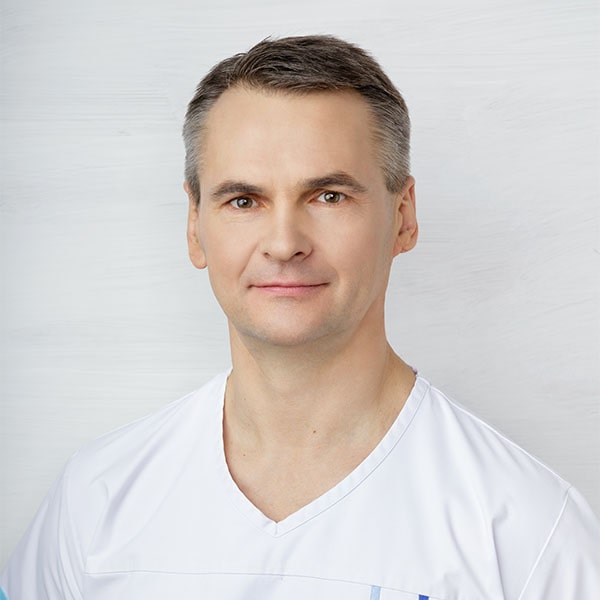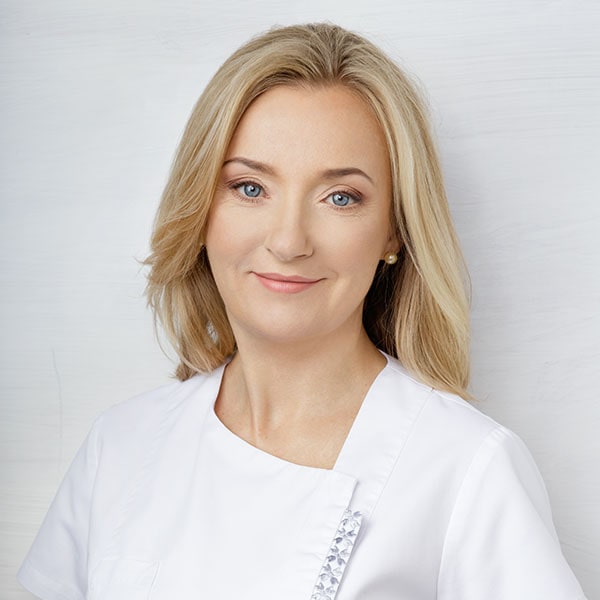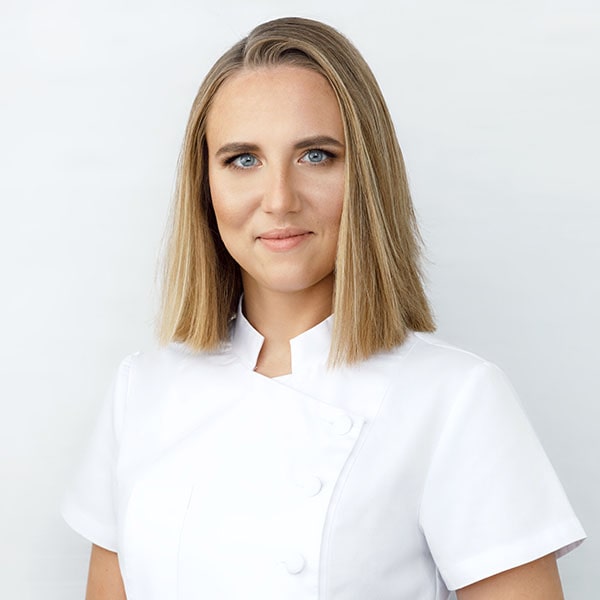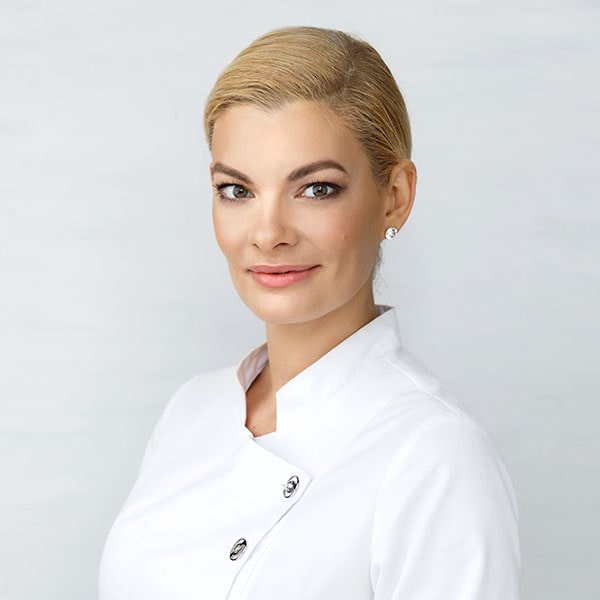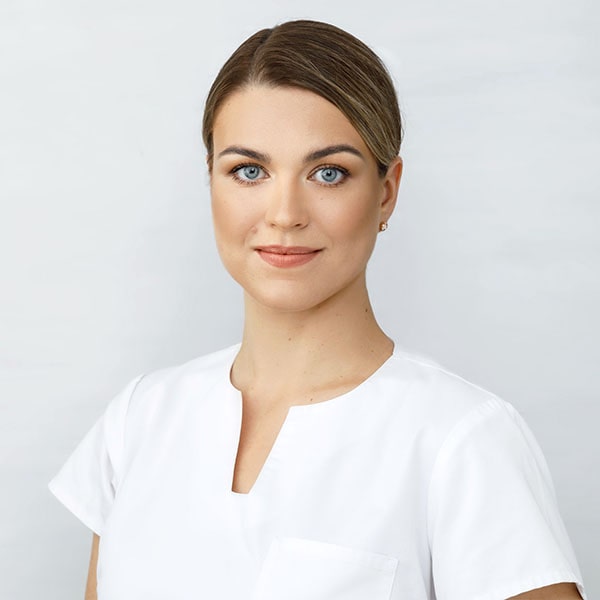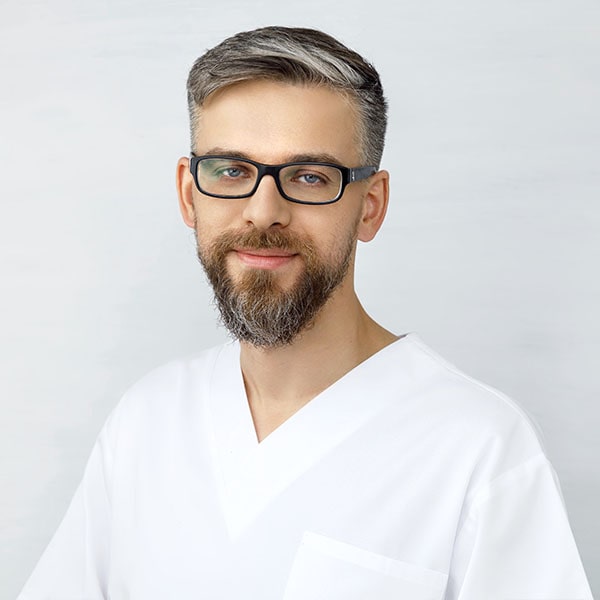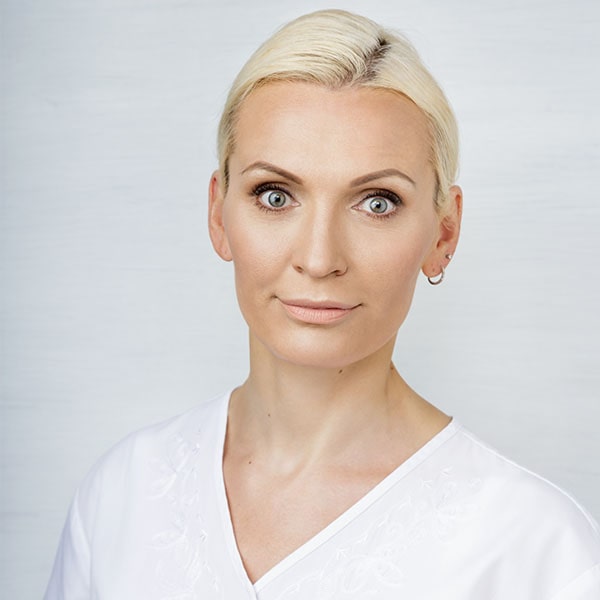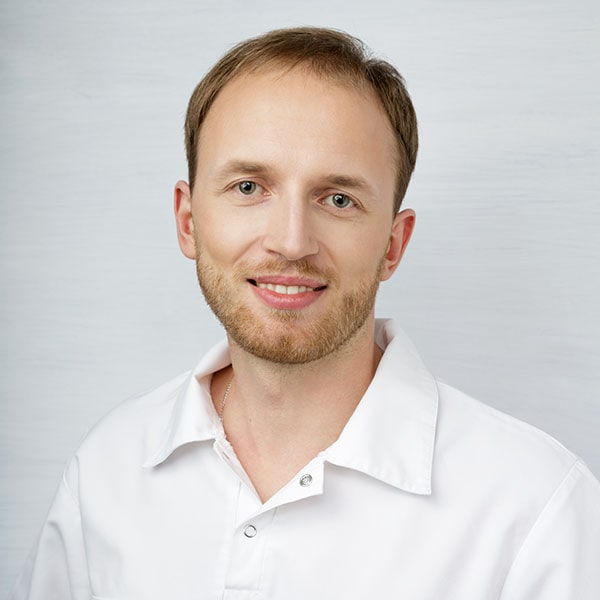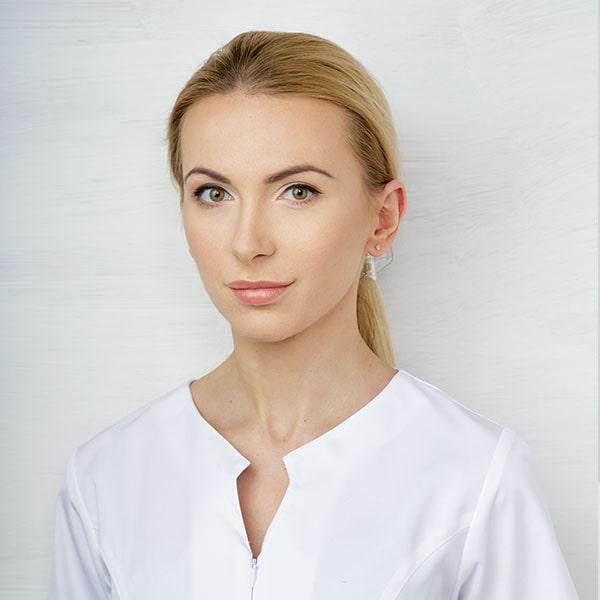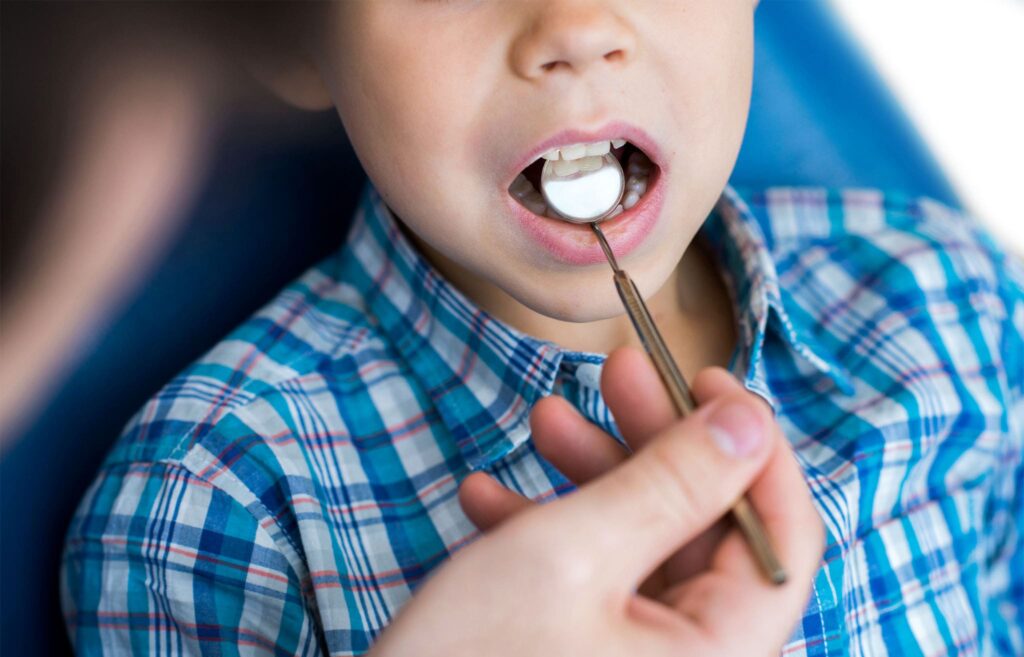
Dental treatment for children
The healthy development of a child’s body relies on a huge complex of various interconnected factors, with high quality dental care being one of the more important ones.. Paediatric dentistry is a specialized field of medicine that covers the prevention and treatment of dental diseases in the childhood and adolescent stages. Paediatric dentists must consider the differing physical and psychо-emotional characteristics of a child compared to an adult.
- Oral inspection and consultation
- Dental care and treatment
- Preventive procedures
- Children’s oral surgery
- Treatment with sedation and general anaesthesia
- At what age should the first visit to the dentist be?
- The main causes of children’s dental diseases
- Why is the care of milk teeth so important?
- Proper oral hygiene is the key to dental health
- If the child is afraid of dental procedures
- Children’s dental treatment in our clinic
- Pricelist
Oral inspection and consultation
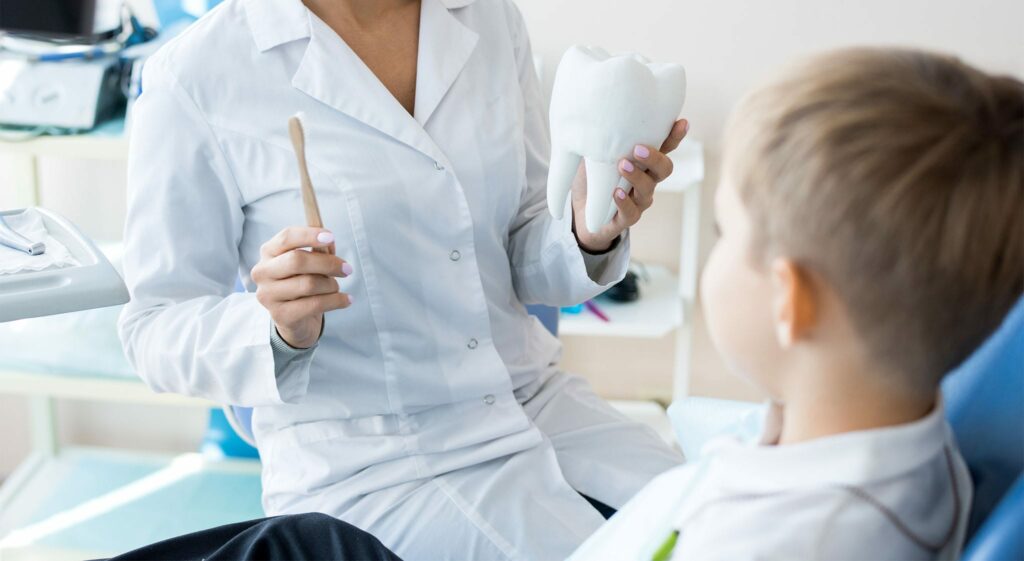
Paediatric dentists recommend that parents bring their child to the clinic regularly (at least 4 times a year) for preventive dental inspection and consultation. Frequent examinations help to detect the onset of tooth decay and other dental diseases in a timely manner. This not only helps protect a child’s dental health, but also helps to avoid potentially expensive treatments.
Our dentists perform professional oral inspections of children, consult on all dental health issues, and issue certificates to schools about the condition of a child’s teeth.
Professional dental examination of a child in our clinics includes:
- Acquaintance and communication with the child by a paediatric dentist, consultation with their parents, answers to questions of interest, personalised recommendations regarding the child’s dental health care.
- A complex of individual, age-appropriate dental examinations and diagnostic methods, the aim of which is to identify any pathologies and diseases of the mouth and to reduce the risk of their future development.
- Carrying out radiological examinations to diagnose latent tooth decay and the initial stages of other dental diseases.
Based on the results of the diagnosis, the dentist ensures that all necessary treatment is performed in a timely manner and that the long-term consequences of dental disease are avoided.
Dental care and treatment
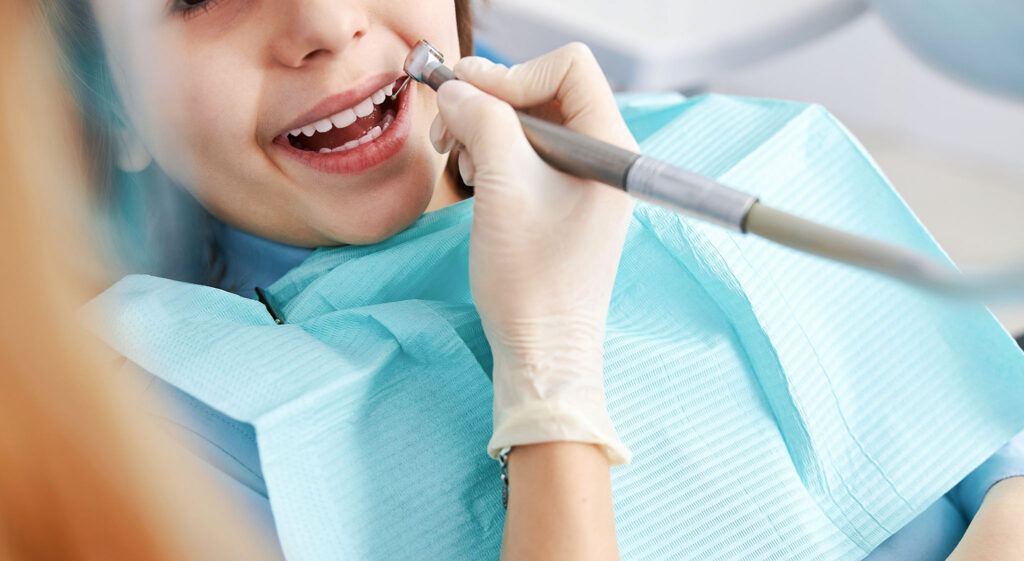
The successful development of a child’s teeth has a direct impact on the formation of their bite. Therefore, a visit to a paediatric dentist is necessary for both detecting the onset of dental diseases, and for professional monitoring of the deciduous and first permanent teeth.
Regular visits to the dentist teach the child to take responsible care of their dental health and hygiene, which helps to prevent serious dental problems in the future.
Treatment of tooth decay and other oral diseases
The development of tooth decay in children is a dynamic process that can lead to serious dental diseases. Therefore, a timely diagnosis and treatment of tooth decay is very important.
Enamel decay appears as small white spots on the teeth, caused by minor damage to the enamel surface (demineralization). Its treatment is the simplest of the conditions as it does not require drilling. The area affected by the initial decay is cleaned and the enamel surface is restored with a remineralizing agent.
Dentin decay damages the dentin (the bone-like tissue within a tooth), which leads to a cavity forming in the tooth, which may appear as small black or brown spots on the teeth. Treatment includes removal of the damaged tissue within the decay and the filling of the cavity formed.
Deep decay develops when the infection reaches the pulp which causes painful inflammation (pulpitis). Treatment of pulpitis requires cleaning and filling the dental canals. If left untreated, an infection caused by deep caries can cause inflammation of the gum tissue and even begin to destroy the bone tissue (can cause periodontitis). In severe cases, it can be impossible to restore the healthy tooth so it is removed and replaced.
Dental crowns for children
One of the methods used in paediatric dentistry to protect a child’s milk teeth from decay, mechanical injury, and to correct any imperfections is the installation of crowns. Crowns are dental prostheses that are placed on the tooth and help to restore the ideal shape and colour of the tooth. Crowns allow you to keep the child’s milk teeth healthy until they are replaced by the first permanent ones. Crowns also protect teeth from decay, help ensure proper chewing function, and contribute to the formation of proper occlusion and diction.
Paediatric dentists working in our clinic use only the most advanced preventive treatments to protect the teeth of children from tooth decay. However, when further infection occurs, we will still provide quality and painless treatment for all stages of its development.
Preventive procedures
Professional oral hygiene
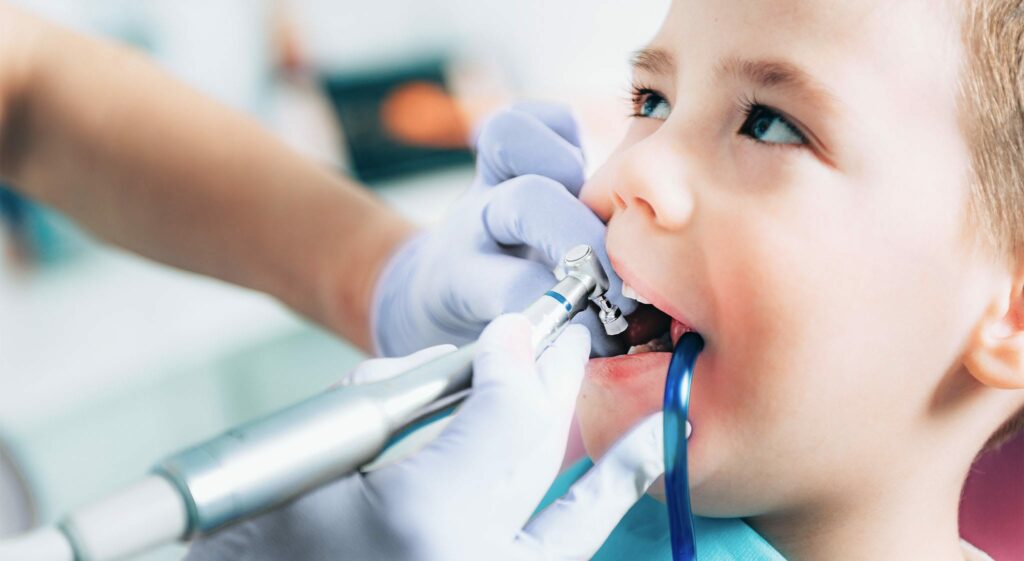
We recommend that children have a professional oral hygiene procedure at least 2-4 times per year, performed by the experienced paediatric dentists in our clinics. This procedure should be performed more frequently for children than for adults, as children’s oral hygiene care skills are still underdeveloped.
The soft plaque that accumulates on a child’s teeth will begin to harden over time and will turn into tartar. Tartar promotes further decay and gum diseases, so it is very important to remove it in a timely manner. This can only be done with special instruments during professional oral hygiene. Therefore, you should try to prevent tartar forming by helping your child practice their oral hygiene skills.
Professional oral hygiene sessions are completely safe and non-traumatic for children. The dentist makes sure that the child will not experience any stress and anxiety during the procedure by making it feel like a fun game. In cases of severe tooth sensitivity or anxiety, professional oral hygiene treatments may be performed under anaesthesia. Milk teeth are thoroughly cleaned by hand using special soft brushes and other instruments, as they are not as durable as adult teeth. After cleaning, the teeth are fluoridated – covered with a special mineralizing substance that helps protect the enamel.
Dental sealants
Dental sealants are a special hardening fluid that is used to fill the grooves and pits on the chewing surface of molars, to prevent them from accumulating bacteria and decaying. Our dental sealant procedure is performed on children who have had their first permanent molars erupt, as only healthy teeth can be covered with sealants. The dentist will ensure the tooth’s healthiness before performing this procedure.
The main advantages of dental sealants are that:
- Sealants provide additional, permanent protection of the tooth’s surface.
- They stop tooth decay at the earliest stages.
- They prevent recurrent decay.
The dental sealant procedure is quick, easy, safe, and painless. The teeth are cleaned, rinsed with special agents, and, after drying, are filled with a liquid sealant that hardens under the UV light of a special lamp.
The use of sealants has gained great popularity and is widely used in modern paediatric dentistry. Sealants are one of the most effective first-time preventative measures for tooth decay. Covering a child’s teeth with a sealant is easier, faster, and cheaper than treating tooth decay. Therefore, it is recommended that we cover the child’s first permanent molars with sealants to protect them from dental diseases as soon as they germinate.
Children’s oral surgery
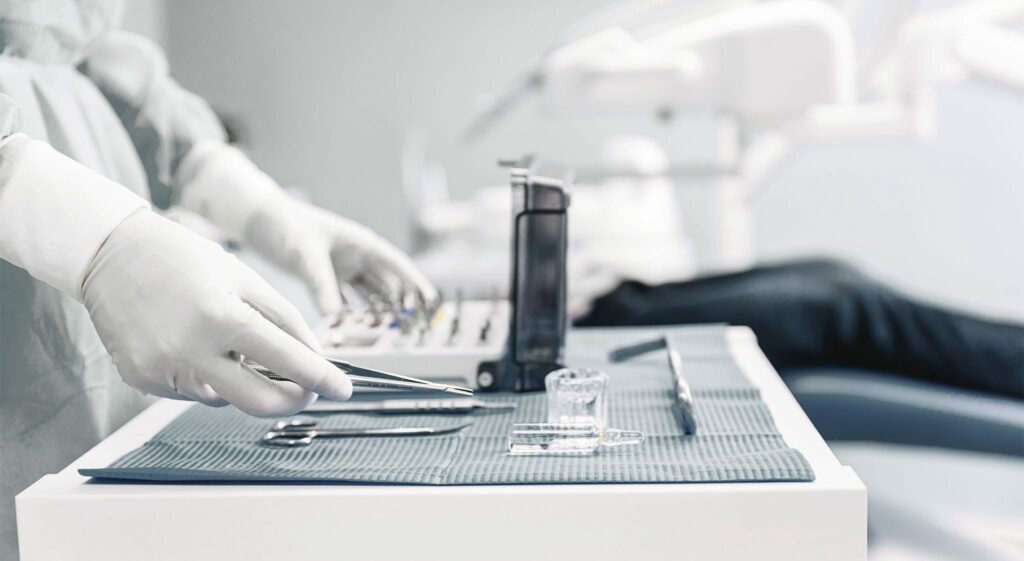
Extraction of milk teeth
The dentist may recommend the removal of the milk tooth if it has been irreversibly damaged or causes discomfort to the child. This procedure is performed in our clinics by experienced paediatric oral surgeons.
At the beginning of the procedure, the condition of the child’s teeth is assessed and additional diagnostics are performed, which allow the doctor to offer a suitable surgical solution. The removal of deciduous teeth is done with or without anaesthesia, depending on the severity of the case and the child’s anxiety about pain.
Tie surgery
Some children are diagnosed with a defect in the frenulum of the tongue, a thin part of the tongue that connects the tongue to the lower jaw and is responsible for its mobility and ability to make sounds, chew, and swallow food normally. This anomaly often prevents children from pronouncing some sounds and letters, as well as their ability to chew and swallow food properly.
Another condition is a defect in the frenulum of the upper lip – when a joint connecting the upper lip and the front teeth can cause a large gap between the front teeth.
In both cases, the tie surgery performed in our clinics is quick and easy. The operation is performed under local or general anaesthesia, so there is no pain felt by the child.
Treatment with sedation and general anaesthesia
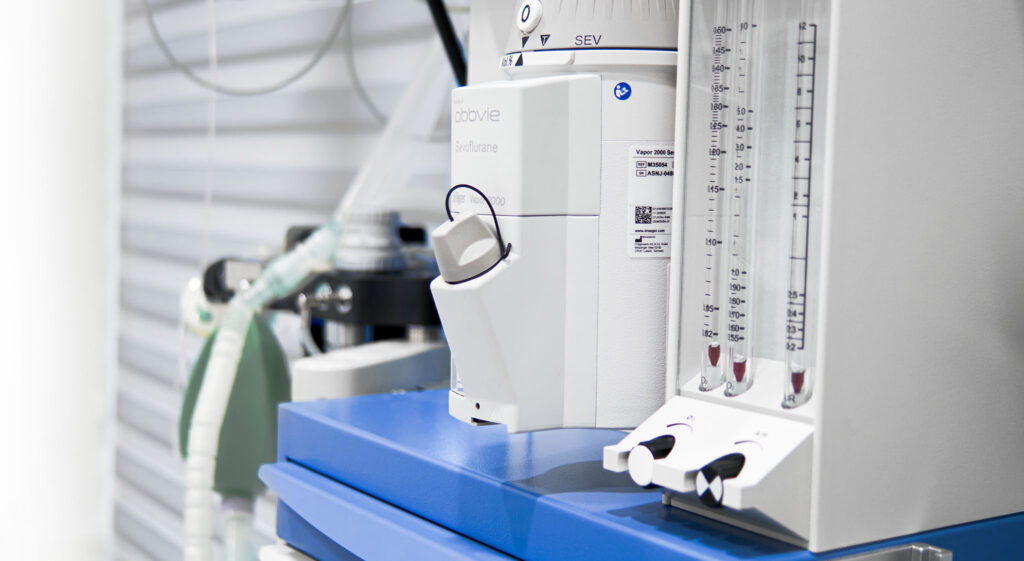
The safe use of modern anaesthesia in dentistry has made it possible for children to experience no pain or discomfort during preventive, therapeutic, and surgical procedures.
The most appropriate method of anaesthesia is chosen depending on the child’s age, their psycho-emotional state, the complexity and duration of the procedure:
- Local anaesthesia. A painless injection into the oral tissue near the treatment area that numbs that area for a short time.
- Sedation. Medications that cause complete relaxation of the body, similar to shallow sleep. The method has virtually no contraindications and is easily tolerated by children. Sedation is characterised by rapid rehabilitation.
- General anaesthesia. General anaesthesia causes a state of deep sleep, during which the patient does not feel anything. To ensure the safety of the patient, an anaesthesiologist-resuscitator is involved during the use of general anaesthesia. The anaesthesiologist selects the anaesthetics and their doses responsibly, considering the patient’s weight and age. Rehabilitation after general anaesthesia can be longer as weakness and dizziness are possible. Therefore, the patient should be observed and monitored for several hours after waking up.
General anaesthesia is used for:
- Complex and long-lasting surgeries (such as root canal treatment).
- Irritability control (hyperactivity, high anxiety, fear of dental procedures).
- In the case of surgical operations where several teeth are removed.
- For treatment of very young children (up to 3 years old).
At what age should the first visit to the dentist be?
It is recommended that your child visit a paediatric dentist for the first time after their first deciduous tooth has germinated. But why so early?
The first visit to the dentist is an important step in a child’s life as it is this event that will leave the child with good first impressions and associations. Children are afraid of the unknown, so there will be no dental treatment or preventive dental care during the first visit. During the first acquaintance with the doctor and the clinic, a professional inspection of the teeth and oral cavity is sufficient. After the examination, the paediatric dentist provides personalised advice and recommendations on the maintenance of dental health, hygiene, nutrition, and the optimal schedule of preventive visits.
An early visit to the dentist not only ensures the health of the child’s teeth, but also gets the child used to the dentist’s chair from an early age.
The main causes of children’s dental diseases
Children’s teeth require responsible care immediately after the first deciduous tooth erupts. Neglection of oral hygiene results in the surface of their teeth quickly becoming covered with plaque, which, when hardened, becomes a breeding ground for pathogenic bacteria. This can cause damage to the thin layer of enamel that makes up the surface of the teeth, provoking tooth decay and inflammation of the gum tissue.
Until a child learns to write fluently, their tooth-cleaning skills will not be developed enough to use a toothbrush properly. This is one of the main reasons why tooth decay often occurs in young children. Therefore, parents are advised to help their child take care of their teeth at home, visit the clinic with the child regularly, and book frequent professional oral hygiene appointments.
A schedule of regular visits to our paediatric dentists helps to avoid possible complications and ensures full-fledged professional monitoring of the child’s oral hygiene and health.
Why is the care of milk teeth so important?
It is very common for parents to mistakenly believe that children’s milk teeth are temporary and do not need treatment. It takes 12 to 13 years from the germination of deciduous teeth before their complete replacement with permanent ones. The period when the first permanent teeth grow in place of fallen milk teeth has a significant effect on the formation of the child’s occlusion.
Proper growth of permanent teeth is ensured by the healthy condition of milk teeth since they support the new growth. When a milk tooth is removed, the adjacent tooth may move out of position and erupt in the wrong place. The loss of milk teeth can greatly complicate the formation of occlusion, transform the shape of the facial skeleton, and cause dental pathologies that may require long-term, problematic, and costly correction in the future.
It is also important to note that:
- Decay-damaged milk teeth can cause painful complications (pulpitis, periodontitis).
- Loss of milk teeth can cause difficulties in chewing and, as a result, disruption of the gastrointestinal tract.
- Losing milk teeth will make it harder for your child to form a correct diction and learn to speak. This can negatively affect their social adaptation.
Therefore, it is very important to treat damaged milk teeth immediately. More importantly, to perform regular dental check-ups in the clinic, to prevent dental diseases and formation of an irregular occlusion.
Proper oral hygiene is the key to dental health
At an early age, children are not able to take full care of their dental hygiene, and parents are also not always happy to clean their child’s teeth at home. As a result, children’s teeth accumulate plaque more quickly, which promotes the development of tooth decay. Therefore, professional oral hygiene appointments are recommended after the formation of a child’s milk teeth (approximately 2.5 to 3 years of age), which is one of the most effective measures against dental diseases.
Professional oral hygiene is a completely safe procedure for children. In our clinics it is performed by our qualified paediatric dentists whose innovative techniques, and highest quality instruments, allow them to clean all the accumulated dental tartar painlessly, quickly, and without damaging the tissues of the oral cavity. During children’s professional oral hygiene appointments, no chemicals are used and no traumatic manipulations are performed on the tooth surface. The teeth are thoroughly cleaned only with special manual tools
Paediatric dentists usually recommend that children have a professional oral hygiene session twice a year. However, the optimal schedule for a child’s procedures is always determined on an individual basis, during the oral inspection and consultation with the paediatric dentist.
If the child is afraid of dental procedures
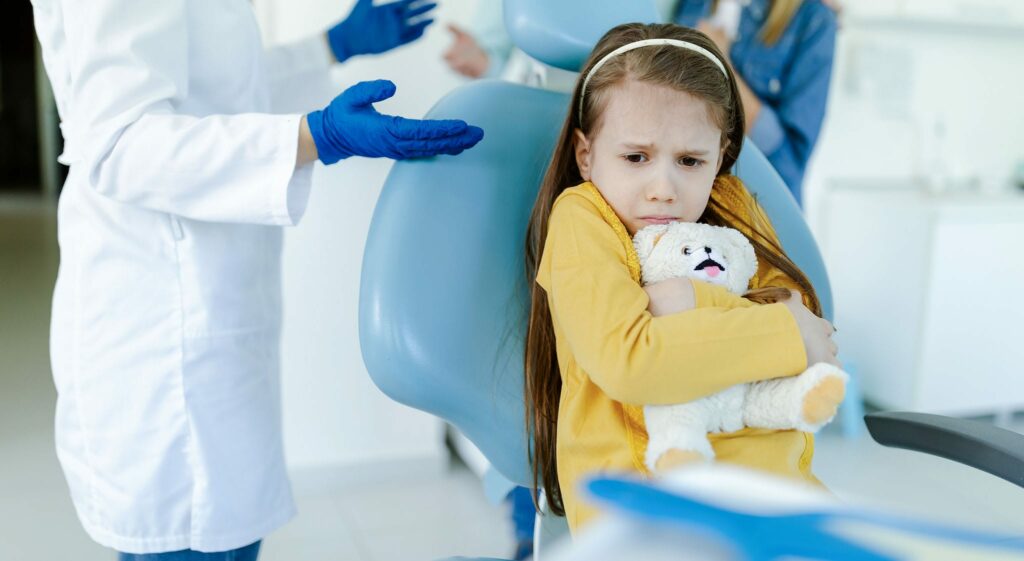
Children who have grown up and are already aware of the changing environment (around the age of 2-3), will often start to become afraid of new situations and places. Therefore, it is important to reduce the child’s anxiety and prepare them for the upcoming trip to the dentist. The first visits to the clinic with a child of this age are best done in an easy, playful way, limiting the child’s stress, and discussing abstract topics with him. The child can be told about dentists treating their teeth, the large comfortable chairs in their offices and interesting instruments that they use. Paediatric dentists working in our clinics not only perform high-quality dental treatment and therapeutic procedures, but also have extensive experience in communicating with young patients. They will help the child relax, ensure that all procedures are painless and stress-free, and teach the child about the importance of dental care.
It is more difficult to convince a child who has already visited the dentist and refuses to visit again. The situation is made worse when it becomes necessary to go to the clinic due to acute, painful dental diseases, as the pain only increases the child’s fear. In such cases, the best solution offered in our clinics is the treatment of the child’s teeth with the use of sedation. By immersing the child in shallow sleep during the procedure we ensure that neither pain nor stress are felt. Sedation is a modern and safe pain relief solution that can also help effectively cope with a child’s dental treatment fears.
Children’s dental treatment in our clinic
In our clinic, children are treated by highly qualified, experienced, responsible, and sincerely loving professionals. We pay special attention to the psychological comfort of our young patients, so we always seek to find common ground with children and provide them with the most effective and high-quality treatment.
Our paediatric dentists know how to make dental procedures look like an exciting game, so children are not afraid to return to our clinic for preventive check-ups and professional treatment.
Pricelist
Oral inspection and consultation
| Consultation (up to 30 min) | 55 € |
| Oral inspection for a school certificate | 20 € |
| Examination, dental check-up | 25 € |
| X-ray examination | 15 € |
| Application of anti-inflammatory drugs (urgent dental care) | 75 € |
Dental care and treatment
| Local anaesthesia | 15 € |
| Sedation | 45 € |
| Milk tooth dental filling without anaesthesia | 75 € |
| Milk tooth dental filling with local anaesthesia | 95 € |
| Milk tooth dental filling with sedation | 125-180 € |
| Permanent tooth dental filling | 85-150 € |
| Treatment of milk tooth pulpitis with analgesia | 120-140 € |
| Treatment of milk tooth pulpitis with sedation | 150-180 € |
| Treatment of pulpitis using MTA cement (with sedation) | 170 € |
| Treatment of a milk tooth and covering with a standard crown | 180 € |
| Milk tooth periodontal treatment | 85 € |
Preventive procedures
| Professional oral hygiene | 57-67 € |
| Application of fluoride paste | 35 € |
| Dental sealant | 30 € |
Children’s oral surgery
| Milk tooth extraction | 65 € |
| Milk tooth extraction with sedation | 85-95 € |
| Tie surgery | 120-240 € |
Treatment with general anaesthesia
| Milk tooth dental filling | 120 € |
| Permanent tooth dental filling | 150 € |
| Treatment of milk tooth pulpitis | 175 € |
| Milk tooth extraction | 80 € |
| Covering a milk tooth with a standard crown (with treatment) | 245 € |
| First general anaesthesia hour | 255 € |
| Second and subsequent hours of general anaesthesia (price per hour) | 115 € |
| Mask anaesthesia | 150 € |

